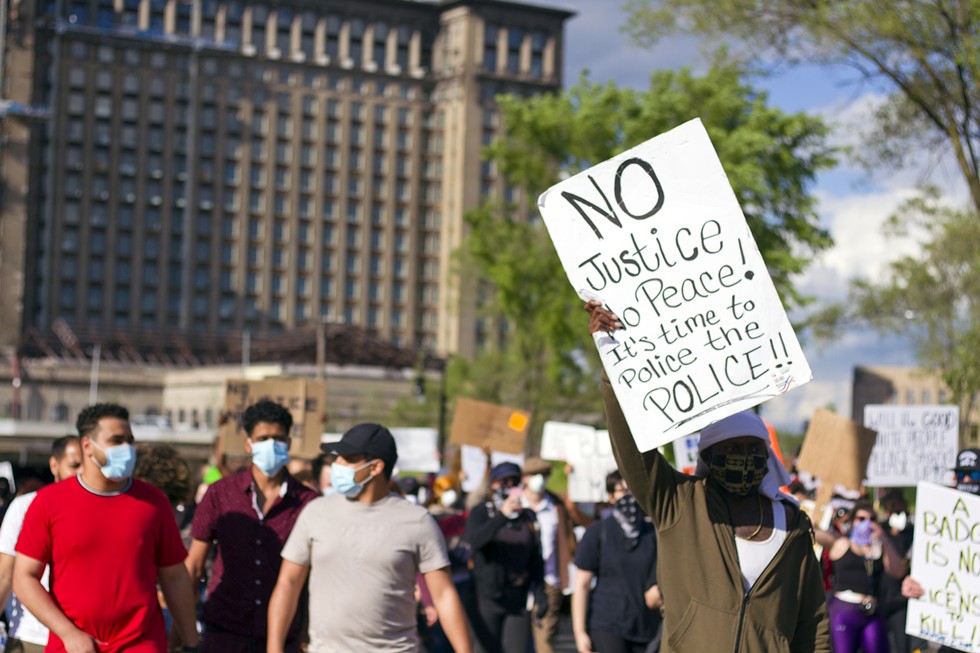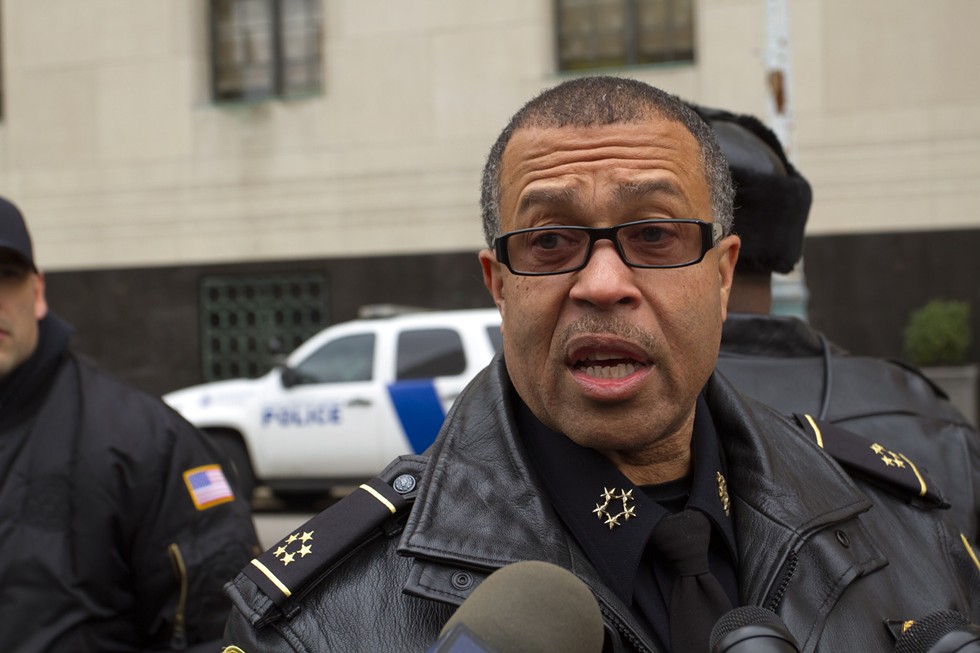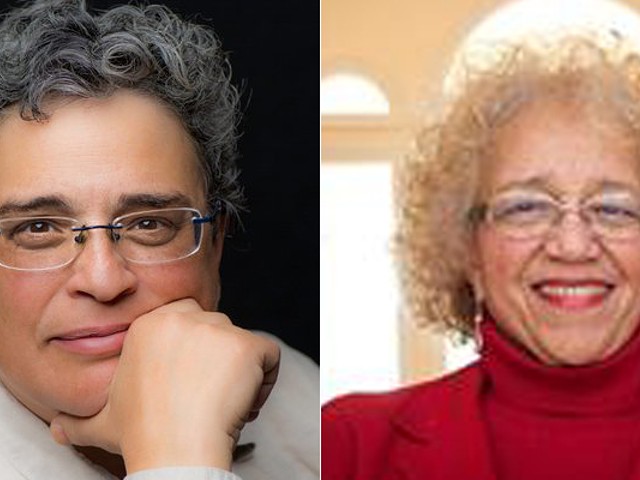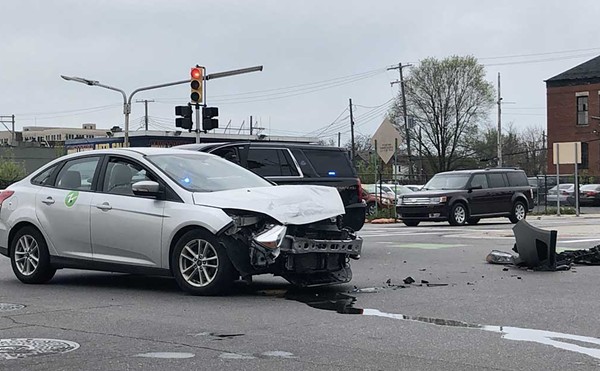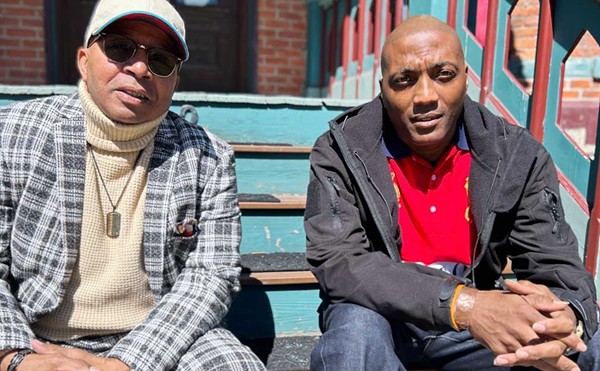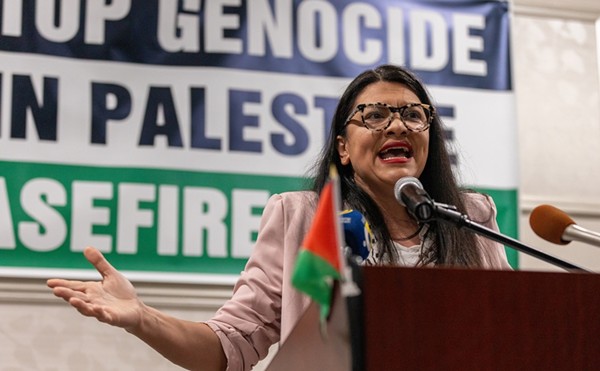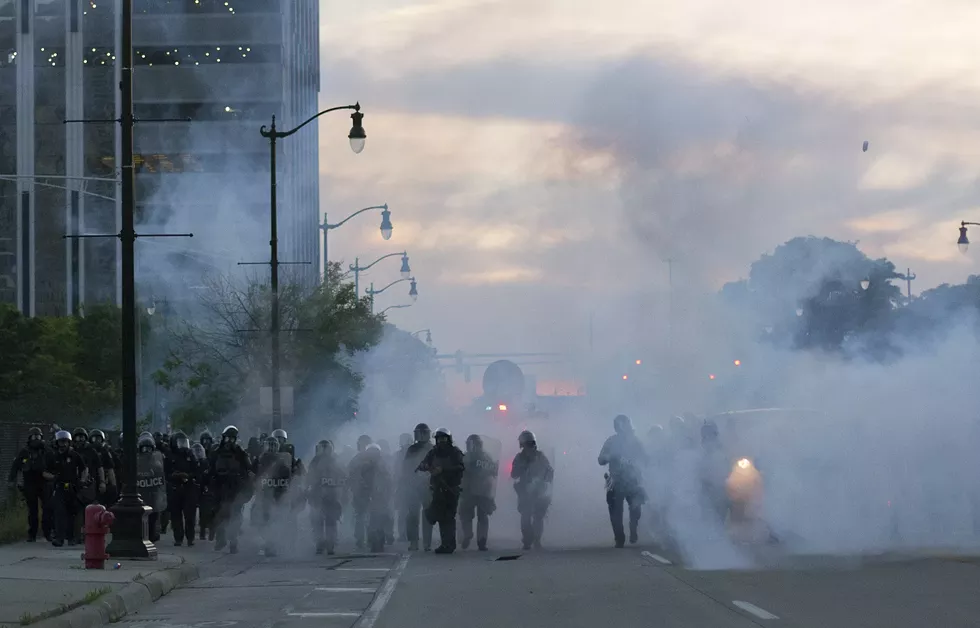
George Floyd. Breonna Taylor. Eric Garner. Tamir Rice. Rayshard Brooks. Their names are etched in America's psyche and chanted during protests across the country. They've become symbols of police brutality in a country where Black people are disproportionately arrested, beaten, and shot by police.
Their deaths have set off a massive movement to "defund the police." But what does that mean?
For many, it's shorthand for reimagining a new public safety system that's more compassionate than punitive. It means redirecting money from police departments to fund youth and community services, education, housing development, homeless programs, mental health services, and parks and recreation. Investing in those resources would address the underlying causes of crime, activists and researchers say.
In Minneapolis, where Floyd was killed on May 25 after officer Derek Chauvin kneeled on his neck for nearly eight minutes, city council members have announced they want to disband the police department and replace it with a community-led public safety system. Other cities with proposals to divest police resources include Milwaukee, San Francisco, Los Angeles, Boston, Louisville, Austin, Dallas, St. Louis, Chicago, New York City, Baltimore, Philadelphia, Hartford, and Washington, D.C.
Every year in Detroit, the city spends a third of its $1 billion budget on the police department, while social services are vastly underfunded. Detroit is the most impoverished big city in America, and without adequate funding to address the root causes of crime, Detroit is annually ranked among the most violent cities in the nation.
Like many cities, Detroit relies on police to handle issues unrelated to crime. They're dispatched to drug overdoses, domestic disputes, evictions, and mental health outbursts; they monitor homeless people and perform wellness checks. In many cases, police are not adequately trained to handle those issues. Activists and some criminal-justice experts believe those tasks should belong to people trained in social work, drug counseling, and de-escalation.
"There is a huge cry for no longer relying heavily on police to solve all societal problems," Jennifer Cobbina, professor at the Michigan State University School of Criminal Justice and author of Hands Up Don't Shoot, tells Metro Times. "Everything looks like law enforcement to the police," she says. "We treat them as if they are doctors who can cure every societal ill. The reality is, they can't."
For her book, Hands Up, Don't Shoot, Cobbina interviewed nearly 200 protesters and residents in Ferguson and Baltimore following the police-involved deaths of 18-year-old Michael Brown in 2014 and 25-year-old Freddie Gray in 2015. The grievances aired during those protests are similar to the ones today because nothing substantial has changed. Modest reforms are not enough, Cobbina says.
"For years we have been overinvesting in police and underinvesting in social welfare programs," she says. "We're beginning to see cities shift how they govern their citizens by providing more social support so we aren't relying on police to aggressively control Black and brown people."
Relying less on police
Some cities are already beginning to rely less on police. In Eugene, Oregon, a team called CAHOOTS — Crisis Assistance Helping Out On The Streets — dispatches a mental-health professional and medic to calls involving people who are mentally ill, homeless, or addicted to drugs. The model has been adopted in Portland, Oregon; Denver; and Los Angeles.
The city of Dallas launched a pilot program, RIGHT CARE, that sends an officer, paramedic, and social worker to mental-health calls in the city's troubled south-central region. The program resulted in a drop in arrests.
In Los Angeles, the city council is studying ways to divert $100 million to $150 million from the police department's budget to community programs. The council is also considering using trained specialists, rather than police, to help homeless people and those struggling with mental health issues.
One in four Americans with a mental illness has been arrested at some point in their lifetime, according to a 2016 study.
U.S. Rep. Rashida Tlaib, D-Detroit, is proposing several measures that would send social workers and other professionals to health- and poverty-related calls that police have long responded to. One bill, the Reimagining Community Safety Act, would shift money that usually goes to hiring more police to a public safety program run by the U.S. Department of Health and Human Services. Health professionals would be dispatched to calls focusing on non-police calls.
Tlaib is also calling for a new emergency-response model that would "sever the link between police and interactions that are primarily health-related." The idea is to use trained behavioral health experts focused on reducing arrests and violent interactions, and providing resources that address the underlying causes of crime.
"Criminalization is not the answer," Tlaib tells Metro Times. "Police are equipped to use handcuffs and guns, and they are trained to apprehend and use force. They are not trained to heal all of the social ills in our society."
Protesters demand change
In Detroit, hundreds of protesters have marched every day since May 29, coalescing into a growing movement called "Detroit Will Breathe."
On two occasions, police responded to curfew violations with rubber bullets, tear gas, and flash-bang grenades, injuring peaceful protesters and, for many, reinforcing fears of police brutality. Rubber bullets struck three journalists and several protesters, including one who suffered a skull fracture on May 31.
Two days later, police in riot gear dragged more than 100 peaceful protesters to the ground on Gratiot Avenue and arrested them for defying curfew. Some protesters were pepper-sprayed.
More than 420 protesters, including reporters and legal observers, have been arrested during the protests. Mayor Mike Duggan imposed the curfew on May 31 after a small group of protesters hurled rocks, bricks, and fireworks at police.
Protesters are calling on city and state leaders to drastically change the criminal justice system, from demilitarizing the police force to freeing nonviolent offenders from prison.
Protesters point to the racist origins of the policing system, which began with slave patrols. After emancipation, newly freed Black Americans were pushed into forced labor for crimes like "vagrancy." In June 1971, President Nixon declared a "war on drugs" that lasted for decades, with Black people five times more likely to go to prison for drug possession than white people.
"The whole damn system is guilty is hell," is a popular chant among protesters.
“Everything looks like law enforcement to the police. We treat them as if they are doctors who can cure every societal ill. The reality is, they can’t.”
tweet this
With nearly two dozen demands, protest organizers met with Police Chief James Craig, Mayor Mike Duggan, and other members of the city administration on June 9. Among their demands are creating more accountability for abusive cops, ending the city's mass surveillance system known as "Project Green Light," and diverting police department funding to address the underlying causes of crime, such as poverty and mental health.
"We're changing the fundamental conversation about policing in the United States and around the world," protest organizer Tristan Taylor said at a June 13 rally. "I think we have the power to achieve so much. This is a great time to be a movement. We are not marching in vain."
Deputy Mayor Conrad Mallett described the meeting with protesters as productive, "very polite," and "the beginning of a long conversation" about the role of law enforcement in a city with complex challenges.
"Reimagining the police force is an interesting concept," Mallett tells Metro Times. "We have to see where this all goes. Like all things in life, particularly associated with government, it is a work in progress."
Mallett says the administration is dedicated to meeting with community leaders "to explore new ideas."
"We want to be able to say to the public, This is what we want to do and this is how we want it to work," Mallett says.
The idea, he said, is to "create something that will be more effective than what we have now and see whether or not we can make more profound progress."
In an interview with Fox News, Craig scoffed at calls to defund the police department.
"It's a knee-jerk reaction, not well-thought-out, and frankly this one-size-fits-all is just misguided," Craig said.
Republicans continue to mischaracterize the "defund the police" movement, suggesting that protesters want to create a dystopian anarchy by abolishing police entirely. Michigan Republican Party Chairwoman Laura Cox retweeted Craig's interview with Fox News, saying the movement's "rhetoric is dangerous, and only threatens to expose our communities to more risk."
Change begins with police commission
Control over the Detroit Police Department primarily belongs to the city's 11-member Board of Police Commissioners. Tasked with oversight of the police department, the commission is responsible for handling citizen complaints and establishing the department's rules, regulations, and policies. Seven of the members are elected, and four are mayoral appointees.
Amid calls for reform, the commission is considering barring chokeholds and requiring police to intervene when an officer uses excessive force.
On June 11, Commissioner Willie Burton, the lone progressive voice on the board, proposed demilitarizing the police force and banning the use of tear gas and flash-bang grenades. Some of his colleagues laughed at him, and the proposals failed.
"You want to be on the right side of history on this," Burton told commissioners as they rejected his proposals without a debate.
One of Burton's proposals was to end the city's relationship with what's known as the 1033 program, a federal government initiative that has given police departments $7.2 billion worth of assault rifles, mine-resistant armored vehicles, and other tactical military equipment. Some U.S. senators are trying to end the transfers, saying police should not be using military equipment on American citizens.
In September 2019, the police commission approved the use of Detroit's facial-recognition surveillance technology, despite mounting criticism that it's racially biased, unreliable, and unconstitutional. Now that the city's contract with the software company is about to expire, activists are calling on city council members to reject it. Protesters mobilized a caravan of several dozen honking cars on June 15 to drive past the homes of three council members to encourage them to oppose the contract extension. A day later, council President Brenda Jones called the caravan "totally disrespectful" and said "enough is enough," threatening to call police to enforce the noise ordinance if protesters do it again.
Taylor responded on Facebook that council members now have a "sense of how we feel in being continuously monitored and treated as criminals."
Detroit's facial-recognition software is especially pervasive because it's used on a quickly expanding surveillance network of high-definition cameras under Mayor Mike Duggan's Project Green Light, a crime-fighting initiative that began in 2016 at gas stations and fast-food restaurants. Since then, the city has installed hundreds of surveillance cameras at parks, schools, low-income housing complexes, immigration centers, gas stations, churches, abortion clinics, hotels, health centers, apartments, and addiction treatment centers. The city is also installing high-definition cameras at roughly 500 intersections at a time when other cities are scaling back because of privacy concerns.
Protesters are calling on the city to ban Project Green Light, saying it's part of a criminal justice system that primarily targets Black people.
Citing studies that show police are less likely to use excessive force if they live in the community where they work, protesters are also calling on the city to reinstate residency requirements for cops. About 87% of Detroit's police force lives outside the city. In 1999, the state banned residency requirements for municipal employees. The non-residency rate grew to 20% in 2001, 53% in 2011, and 75% in 2017.
One of those officers, Daniel Wolff, was forced to retire after calling Detroiters "garbage" and bragging about assaulting children.
In a Facebook post about the debate of reinstating residency requirements, Wolff complained that "you can't walk up to a kid or asshole and smack him in the face like we did" because of the widespread use of cellphone cameras. He also said the city he serves is "just a nasty place" and bragged that he used to strike residents with "handcuffs in the head."
Tracking bad cops
Elected officials in Michigan are responding to the calls for reform. To track bad cops, Attorney General Dana Nessel has proposed creating a statewide, publicly accessible database of officers who have committed misconduct. The registry is part of a seven-point plan designed to hold police more accountable and increase transparency so that problem cops can't go from city to city with impunity.
Under the plan, the Michigan Commission on Law Enforcement Standards would have the authority to strip officers of their licenses for misconduct, officers who commit felonies related to misconduct on duty would forfeit their retirement benefits, law enforcement agencies would be required to report use-of-force data and maintain disciplinary records for each officer, and police would be mandated to undergo de-escalation and implicit-bias training.
"We must do more than just condemn bigotry and acts of excessive force committed by law enforcement officers. We must act," Nessel said in a news release last week. "Making meaningful and concrete changes doesn't end here, but it's crucial that we move first with measures which create better accountability and more transparency to the actions of law enforcement here in Michigan. This work is a marathon, not a sprint and I am committed to moving with all deliberate speed in making progress on this front."
Michigan officials also announced a new initiative on June 17 to publicly release use-of-force data as part of the Law Enforcement Transparency Collaborative (LET-C). The information includes data on every injury or death stemming from a law enforcement officer's use of force, and each time an officer discharges a gun at or in the direction of a citizen.
"Publishing statistics about police use-of-force in Michigan is a good first step to providing insight to the public and others into how police officers in Michigan are using force, which should lead to more informed and productive conversations about this important topic," Michigan State Police Director Col. Joe Gasper says in a news release.
Since 2015, police have killed 87 people in Michigan, more than half of whom were people of color.
The state Senate also passed legislation that would require de-escalation and anti-bias training and ongoing mental-health screenings for police.
"This is only one step towards the greater justice and freedom that our residents are calling for," bill sponsor Sen. Jeff Irwin, D-Ann Arbor, told lawmakers before the vote. "There's work to do in every corner of this nation to fight for this greater justice and to drive progress to end police brutality."
Another resolution calls for declaring racism a public health crisis.
Joseph Hamm, a professor at Michigan State University's School of Criminal Justice, says police won't build trust with communities until their actions change over time.
"We have to address the vulnerability that people have with law enforcement. We can't just say these officers are generally good people who occasionally do something wrong," Hamm tells Metro Times. "It's too late for rhetoric. It's too late for police chiefs giving really good statements. We're beyond that."
Stay on top of Detroit news and views. Sign up for our weekly issue newsletter delivered each Wednesday.

